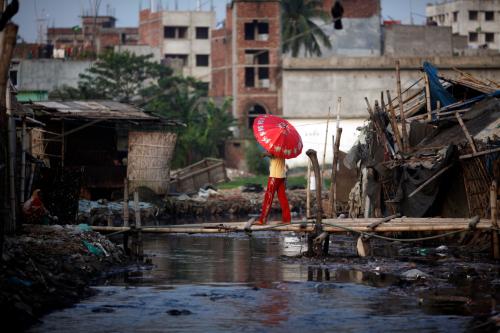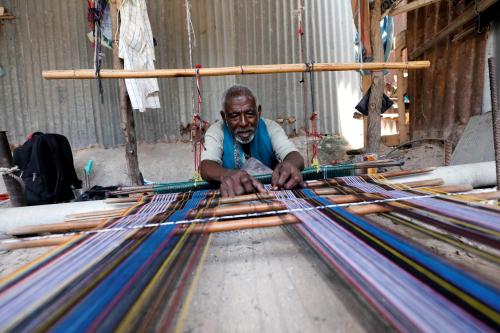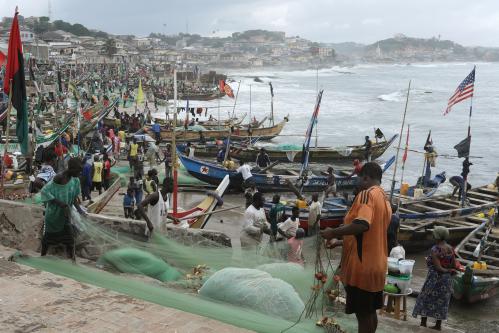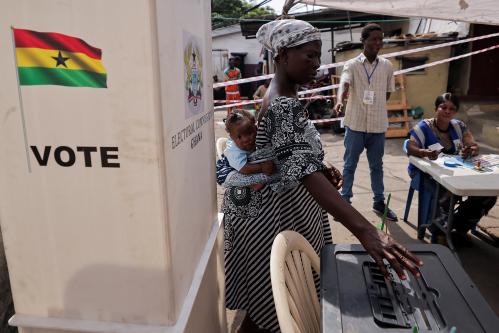Fragile and conflict-affected states in Africa currently account for about one-third of those living in extreme poverty worldwide. These states struggle with tradeoffs between development and stabilization, the need for economic stimulus and debt sustainability, and global financial stewardship and transparency. Addressing fragility requires innovative approaches, the strengthening of public and private sector capacity, and strong will from the government and international partners. On this last issue, Somalia, known for its decades in extreme fragility, has taken a lead: Its government has shown great determination and political will as it works towards stabilization, recovery, and reconstruction after a long civil war beginning after the collapse of Siad Barre’s government in 1991.
Financial issues, including national debt and domestic resource mobilization, remain major obstacles for Somalia’s path to reconstruction. The International Monetary Fund has welcomed Somalia’s intention to begin making payments on arrears in 2020, which may pave the way for eventual debt relief under the Highly Indebted Poor Countries (HIPC) Initiative. Somalia has also begun collecting taxes and paying government salaries in full for the first time in decades. This progress is an encouraging sign of Somalia’s commitment to its roadmap forward.
On Thursday, October 17, the Africa Growth Initiative (AGI) and the Doha Center at the Brookings Institution hosted Somali Finance Minister Abdirahman Duale Beileh to share his thoughts on economic adjustment in Somalia. The event began with introductory remarks by AGI Director Brahima Coulibaly. Following his remarks, Dr. Beileh joined Brookings Global Economy and Development Senior Fellow Raj Desai on stage to discuss Somalia’s recent economic and social progress, development assistance and domestic resource mobilization, and issues of fiscal federalism and territorial integrity in Somalia.
Dr. Beileh began his remarks by describing the remarkable progress moving out of fragility and conflict that Somalia has made in recent years. He emphasized several positive developments, including the collection of taxes, interaction with the international community on issues such as debt relief, the return of the diaspora, and improvements in trust between Somalian citizens and the government:
Dr. Beileh then expanded on the process of re-engaging with international financial institutions and Somalia’s progress towards becoming eligible for debt relief:
While addressing Somalia’s challenges and progress in moving to a system of fiscal federalism, Dr. Beileh also discussed the complexity around the territorial integrity of the country and the benefits of dialogue and discussion among Somalia’s states:
Finally, Dr. Beileh discussed the need to address the “supply side” of conflict—unemployment and desperation of young people that drives them to terrorism:
The Brookings Institution is committed to quality, independence, and impact.
We are supported by a diverse array of funders. In line with our values and policies, each Brookings publication represents the sole views of its author(s).







Commentary
A conversation with Somali Finance Minister Abdirahman Duale Beileh on economic adjustment in fragile African states
November 4, 2019